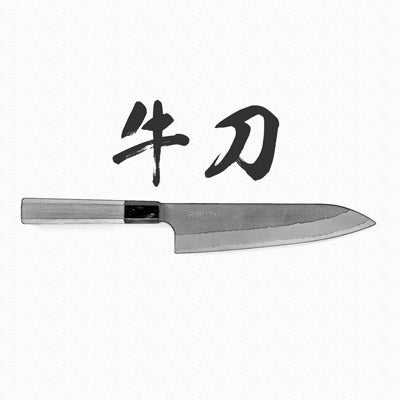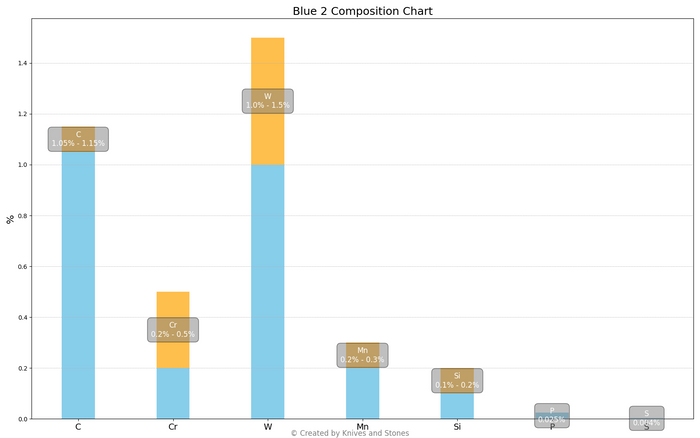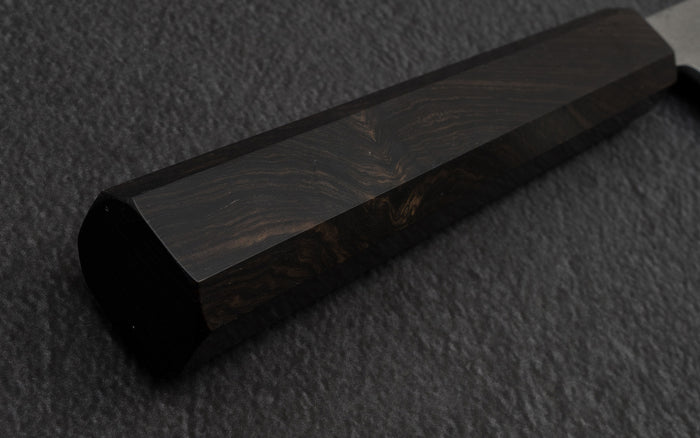Mazaki | SKU:
MAZA_B2HONDM_GY24_Y24
BFCM2024 Mazaki Blue 2 Hon-Sanmai Gyuto 240mm Double Spacer Ver2024
$870.00
Unit price
/
Unavailable
Tax included
Shipping calculated at checkout.
BFCM2024 Mazaki Blue 2 Hon-Sanmai Gyuto 240mm Double Spacer Ver2024 is backordered and will ship as soon as it is back in stock.
Couldn't load pickup availability
Detailed Specifications
| Line | Mazaki White 2 Migaki |
| Profile | Gyuto / Chefs Knife |
| Bevel Type | Double Bevel |
| Weight | 292 g 10.3 oz |
| Edge Length | 243 mm .9.57 inch |
| Heel Height | 55 mm .2.17 inch |
| Width @ Spine | 5.8 mm 0.23 inch |
| Width @ Mid | 2.5 mm 0.1 inch |
| Width @ 1cm from Tip | 0.7 mm 0.03 inch |
| Steel | Blue 2 / Aogami #2 | Carbon |
| Blade Construction | Sanmai - Soft Iron Clad |
| Hardness (HRC) | 61 - 63 |
| Surface Finish | Migaki |
| Handle | Octagonal Ebony |
| Region | Sanjo |
| Best for |
|
Part of the BFCM2024 promotion. Mazaki Blue 2 Hon-Sanmai Gyuto 240mm, comes with double metal spacer marble horn ebony handle and a Jiu Stuido magnetic knife guard.
PS, don't buy a saya. Our "Thick Spine Mazaki Saya" no longer fits the 2024 profile :/

| Pros | Cons |
|
|
|
Care Instruction
- Don't cut hard things! Japanese knives are brittle so bone hacking is a NO NO!
- Wash with neutral detergent after use, and wipe dry;
- Please don't wash knife with dishwasher, it will damage the wood handle;
- Be careful not to leave the knife close to a heat source for a long time;
- It is a lot more dangerous to cut with a blunt knife than a sharp knife!
- It is best to sharpen a Japanese knife regularly on a waterstone.
- Oil the (carbon) knife if storing for an extended period of time to prevent rust.



























